Epistemic status: This story came out a bit weird and long. If you just want the TLDR of why I wrote it, skip to the afterword.
The decor, John reflected, wasn’t all that different from his old MTA office back in Manhattan, although there it was probably unintentional. And of course the view was different. The streets in Manhattan always had cars scattered around, half on the road and half on the sidewalk, like they’d been scattered by some kind of giant salt shaker from Detroit. Here, the streets were covered in bones.
“Customer one one zero four zero seven, please approach the counter”, the intercom rang out. He walked up to the counter and scanned his paper, which had the number “110407” written over what was either a demonic sigil or a QR code, he couldn’t tell. The flashing arrow pointed at the door on the right.
“So it says here you were a railroad engineer”, said the bespectacled man behind the table, thumbing through his file. At least, John was pretty sure he was a human. He had a little name tag that said “Eddie”, in English.
”I was a senior manager at the MTA”, John answered. “It’s not like I was going around building the tracks myself.” He wondered where Eddie was going with this. He hadn’t been dead for long yet, and he was still figuring things out. He hoped they wouldn’t get worse, but the bones and the red skies outside had him worried.
“I see. Well, it looks like you’ll have a chance to rectify that.” Eddie closed his folder. “Your instructions are to build us a metro system here.”
John was confused, but he couldn’t let himself show it. He’d had a long career playing state politics, and he knew that looking like you were on top of things mattered more than your actual decisions, especially when you were out of your depth. And he’d certainly never been anywhere as far from his usual depth as this before.
“You see”, Eddie continued. “Hell has a lot of people - more than any city back on Earth by a long shot, especially since people tend not to leave here as fast. We’ll scatter them around in different cities as we can, but many people do need to be near each other for their… tasks. Right now they all have to walk, but in a sprawling city like ours that can take forever. We’d appreciate having some sort of mass transit system to help us.”
“People don’t drive?” John asked reflexively.
“It’s far too crowded here for everyone to have cars, even if you could clear out all the bones. Besides, there are… other reasons, why a car-based system wouldn’t work here. I imagine you’ll figure them out on your own in time.”
“What’s the project outline? And the budget?” John asked.
“The outline? Just… build us enough of a metro that everyone can use it. It should be straightforward enough - after all, it’s not like we have suburbs here.” John thought Eddie would smile at that, but he just went on. “And to clarify - this is on you. There’s no budget, no employees to manage, no one’s going to work for you on this. Some people might help you with the parts you can’t do on your own, but everyone here has their own task to do, and this one is yours.”
“You want me to build an entire citywide metro system… on my own?” John asked, finally losing his composure.
“Yes. After all, you have all the time in the world.” This time Eddie did smile, almost. “The city does have a public library if there’s anything you need to learn in order to do this. And while you’re not on a deadline, I do suggest you get started as soon as possible. After all, this is your Task.” John gulped. He hadn’t seen any demons here yet, but he didn’t want to think what they’d do to him if he willfully ignored orders. Reviews from the New York state governor’s office could be bad enough, and he doubted Hell has any laws about cruel and unusual punishment. “Don’t let me keep you”, Eddie said, and pressed the button. As John got up to leave, he heard the intercom sound again. “Customer one one zero four zero nine, please approach the counter” it buzzed. He wondered how often they reset the count.
Three hours later, he realized he had no clue where the library was. It wasn’t the size, though it seemed bigger than any city back on earth. It was the complete lack of pattern. There was no coastline, no rivers, not even really any topography beyond a gentle slope that always seemed to be slightly uphill. No skyscrapers or train tracks either, and barely any streets. Just midsized buildings of indeterminate purpose scattered around the bone-filled streets, none looking quite the same as any of the others but in no pattern he could figure out. Some of them could be reception offices like the one he’d just left, or maybe some other businesses (for people to do their “tasks”, whatever those were). Some might be residential, though he realized as he thought it that no one had said anything about him having a house, and he wasn’t sure how he’d go about getting one. If no one needed to eat or sleep, did people even have homes here?
Actually finding the library ended up taking him two weeks.
Or, well, he thought it did. There was no sun here and he never slept, so counting days involved some guesswork. But the omnipresent red glow varied in intensity from being almost as bright as a cloudy day to an evening twilight, So he called it a day every time he couldn’t see too far across the street.
He gave up quickly on looking for a building that looked like a library, all the buildings looked the same. And the people he did see on the street all looked busy scrambling somewhere, too busy to ask for advice or directions. So he just stopped and tried every doorway he saw. Most were locked. The ones that were open led to assembly halls, abandoned factories, gloomy courtyards, other buildings whose use he couldn’t imagine. He often found himself opening buildings he was sure he’d seen before, and couldn’t tell if they were just similar, or if he’d gotten lost and turned around to a street he’d already gone through.
The library itself was the most normal building he’d seen since coming to hell. It could have been a public library in any college town in America, with bookshelves and reading nooks and, for the first time in hell, an actual clerk behind the counter waiting to help.
“What can I do for you?” She asked helpfully.
“I need a book on how to build a train”, he blurted out. It felt odd to talk to someone after so long.
She barely even blinked. “For engineering, you’ll need to look in the 620s. Probably 625 for actual railroad engineering, maybe 524 for structural or civil engineering. You might want to look at the commerce or design parts too, that’d be 385 and 740. Just follow the signs down the hall.”
He started walking away. He felt like he should try to have an actual conversation, but… why bother, really? He was already dead. It wasn’t like she could help him get ahead in office politics.
“One last thing”, she called after him. “No borrowing books. You can come here to read anytime, but you can’t take books outside the building.”
Oh well. The reading room here was comfortable enough. It wasn’t like he had anywhere to take them to anyway.
It was the start of a very long project.
He started off reading a few general books on transit planning, half of which didn’t seem to apply to his situation (you couldn’t have morning rush hour commutes when you didn’t have homes, jobs, or mornings for that matter), and the other half of which he didn’t understand, beyond understanding that he needed to plan out the lines on a map. When he asked the librarian about maps, she said they didn’t have any there.
He spent the next few months walking around the city with pens and paper and drawing his own maps. The first set of maps was so bad he couldn’t even find places he’d already mapped with them. He second set weren’t much better. He got lost more than once. But eventually he got to know the city, and learned to draw better maps. He thought, after his seventh or eighth version, that he really should’ve read a book on urban cartography at some point. When he did it now, he found it was mostly full of things he’d already figured out. But he understood the rest of it easily enough, and the next set of maps were good enough that he was satisfied. He hung them around the walls of the library reading room, which he’d turned into his study and planning chamber.
He couldn’t begin to guess what commuter patterns would be like here, though. He ended up just drawing three lines through the city in a soviet triangle (not that center of the city here seemed any busier than anywhere else). He figured he’d just tunnel where he had to and couldn’t get around buildings.
Once he finished with that, he realized he didn’t actually know how to build any railroads, or trains, and that he was getting ahead of himself. He needed to start with an engine, then a test track, and only then try to expand it to an actual network. So he started on that.
The first problem with an engine was that he didn’t have anything to use as fuel. He spent months trying to find any traces of coal or oil, reading prospecting books and walking in the hills around the city. He found traces of metal ores, what looked like iron and copper and even gold. But he never found anything that looked like it could. be fuel, until one day he ran into a hot spring outside the city.
So he started to build a geothermal power plant. It took years, probably. He’d long since lost track of time. It was at least easier than building any sort of geothermal plant on earth would have been, since the fires of hell were, well, right there.
When he was done with the power plant, he started building the test track for his first train, where he ran into his first real problem: He didn’t have any wood.
He could find raw metals around, and iron bars (which he could melt and weld now that he had his power plant). He even found some weirder stuff, like lightbulbs, just lying around somewhere. But Hell did not compromise on not having and planks of wood, like it didn’t have trees or animals.
What Hell did have an abundance of was bones, left behind from the uncountable billions of people who’d ascended away after their time, leaving only their bones behind. They never decayed, never broke, never faded. They were, in a way, the perfect building material, and he used them everywhere he could. Especially to build the tracks. Besides, they matched the aesthetic.
Building the test tracks and setting up the overhead wiring was straightforward from there. Building the actual train cars was harder, but he eventually figured it out. The hardest part was figuring out the controls. There was only him in charge, so he couldn’t employ drivers and conductors the way he had in life. He needed to figure out how to fully automate the train.
The good news was that he needed far less security measures than he would on have on earth. He still needed a reliable system, of course, but he didn’t need to build in emergency brakes and collision detection when none of the passengers or pedestrians were physically capable of getting injured. He could just let the collisions happen (unless the trains themselves broke down by them), the people they hit would be fine. But he did need to get some computers and learn how to code them, and that was beyond his ability to just figure out how to build from scratch.
He talked to the librarian, for the first time in many years, to ask if she knew where he could find such things. She didn’t know, but told him where to find a Gentleman named Robert who, the story said, had in life created a programming language so terrible that he had been condemned to Hell until such time as he atoned for it by creating a truly good programming language1. Robert not only taught him to code in his new language, but showed him his warehouses full of control electronics and how to use them. Whatever it was he’d done in life, he seemed determined to atone for it.
After that there were no more major surprises. He built the rail tracks where he’d planned. A few times he had to dig tunnels in order to keep the lines reasonably straight, but after seeing how long and painful the first tunnel was to build up to standard and having a couple of near collapses, he learned to avoid it wherever possible. Once or twice he had to build a bridge, which was hard but not nearly as bad as the tunnels. He wanted to be a completionist, so he built all three lines before running any trains on them. Finally, he was ready to open.
John rode the train on the first day, which only had a single rider. It was a young man who’d only just arrived in Hell. He hadn’t even realized having a train here was new, or in any way novel. He just got on the train because, well, that’s what people did to get places in a new city. And for the first time in many, many years, John talked to someone, not to solve a specific technical problem he had, but to find out more about him. He never learned why the man was in Hell, or what his task was. Mostly, the man just told him about missing his dog.
The train had very few other riders in the weeks that followed. A few other newcomers to Hell discovered the trains and started to ride them, but most of the long time residents just ignored them as they ignored almost everything around them, and kept walking everywhere. John decided it was time to start marketing. He decided to name his new metro system. He branded it for the bones he’d used to build it. Meatrails: Railways made for humans, from humans.
The ads helped him get more ridership. At first the trains were unreliable. Occasionally they would crash, which would require months of work to discover how to make sure the crash didn’t happen again and to fix the train or build a new one. A couple of times he ran out of power. He built three new geothermal plants over time, which stopped that happening again. And with his improvements in the software and reliability, crashes happened less and less, and went from something he was constantly scrambling to fix, to occasional issues, to things he never had to think about. What problems did remain were so simple that passengers usually managed to fix them themselves using the onboard manuals before he even got there.
He spent more time talking to passengers. They were lost people, he realized, all of them, torn out of their lives and sent to Hell to complete their tasks. No one ever told him their actual task, just like he never told anyone his; a person’s task was for him alone to complete. But they talked about the other things, about where they needed to go and how they got lost in the city or in their lives, and he learned about them. He’d never talked to people this much in life, not just in Hell.
He realized, over time, that he’d build his trains all wrong. He’d drawn lines on the map, but they weren’t where people actually needed to go here. He talked to more people on the street, too, the ones who weren’t taking his trains. He planned a whole new system with five new lines, in addition to his original three. It needed more trains and more scheduling software and more power stations, but now he knew what he was doing and built it all much faster. And when he was done, a lot more people got on his trains. It became the normal way to get anywhere further than a five minute walk away.
He didn’t have much to do anymore, but it didn’t bother him as it had used to. His system was running well, and that was what was important. He talked to the passengers, and checked on the occasional bugs in the system - although that was mostly out of habit, now, his automated systems mostly solved them by themselves - and took the trains all around the city every day. The people, too, seemed more relaxed on them then they had when they walked around alone everywhere. Sometimes they even talked to each other, and not just to him.
One day, he suddenly felt it was time. He’d built a system out of the bones of the pople who’d done their tasks and ascended, and now it was time for him to go Elsewhere as well. He got off the train at the end of the line and walked away towards the horizon, leaving his bones behind. He hoped they’d use them to build another train, someday.
Afterword
This story was kind of hard for me to write, which makes me suspect it’s not my best work. It was still important to me to actually write it, because I liked both parts of the idea. I like the concept of having literally infinite time to singlehandedly solve a problem, even a giant problem like a major national infrastructure project. Honestly, I like the idea of trains made of bones running through hell. But mostly, I liked the idea of taking a career politician type who never especially cared about the physical results of what he did, the sort of person who drives to work despite working in the MTA, and forcing him to carry out every single step of the process. Of making him understand, in his bones as it were, the true cost of every complexifier, the effort of digging every extra tunnel, on the one hand, and on the other hand understanding what it means to the actual people using it. Of making him care about the actual results, not just the political career implications. There’s a real sense, I think, in which that’s needed to redeem people’s souls. For themselves, not for anyone else. It’s important to do something that actually matters.
Take that, R programming language. You deserve it.





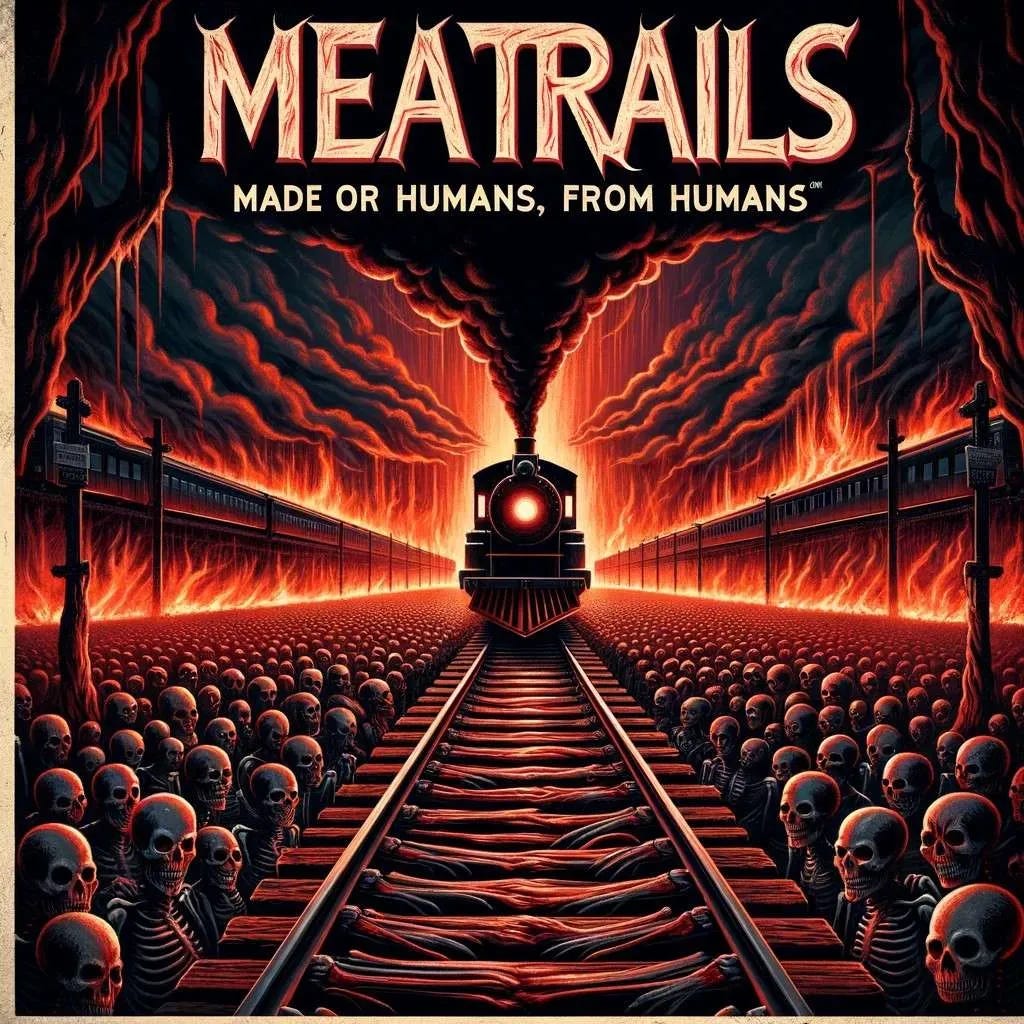
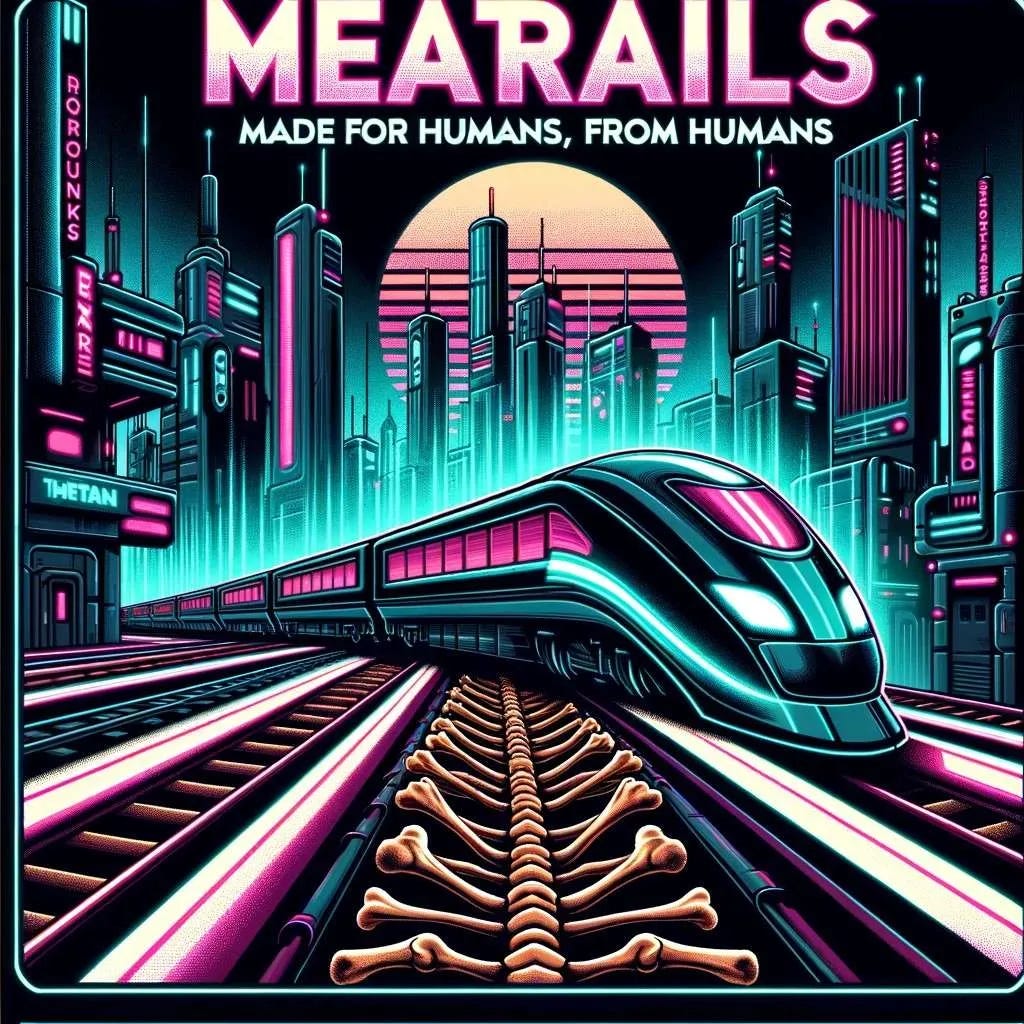
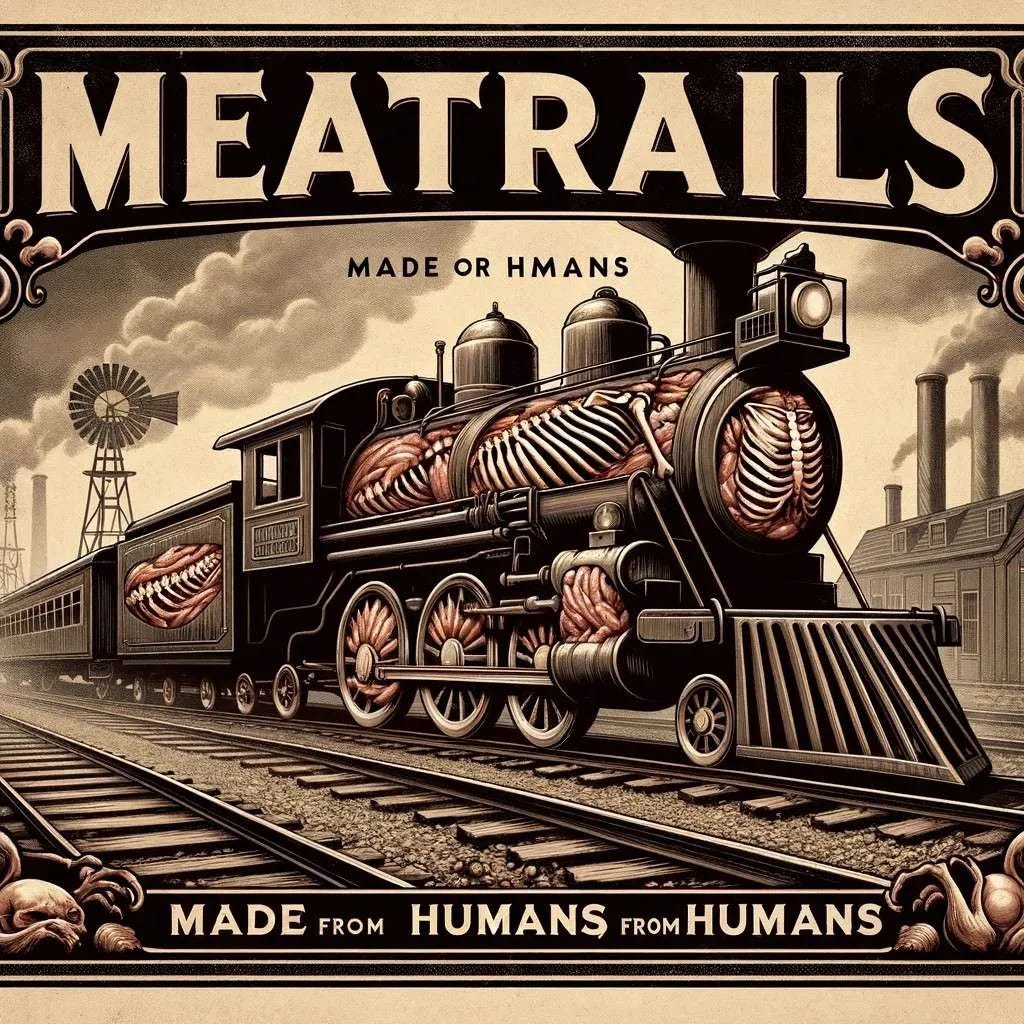
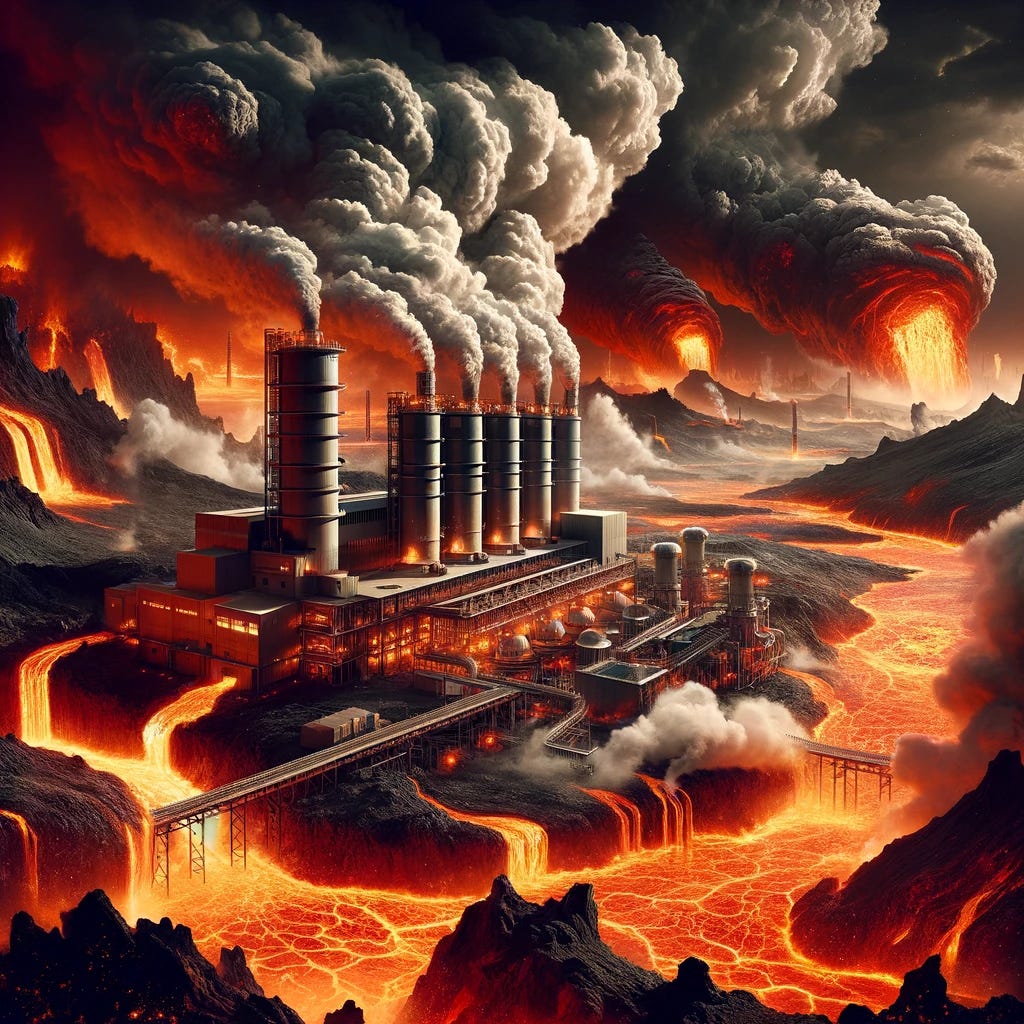

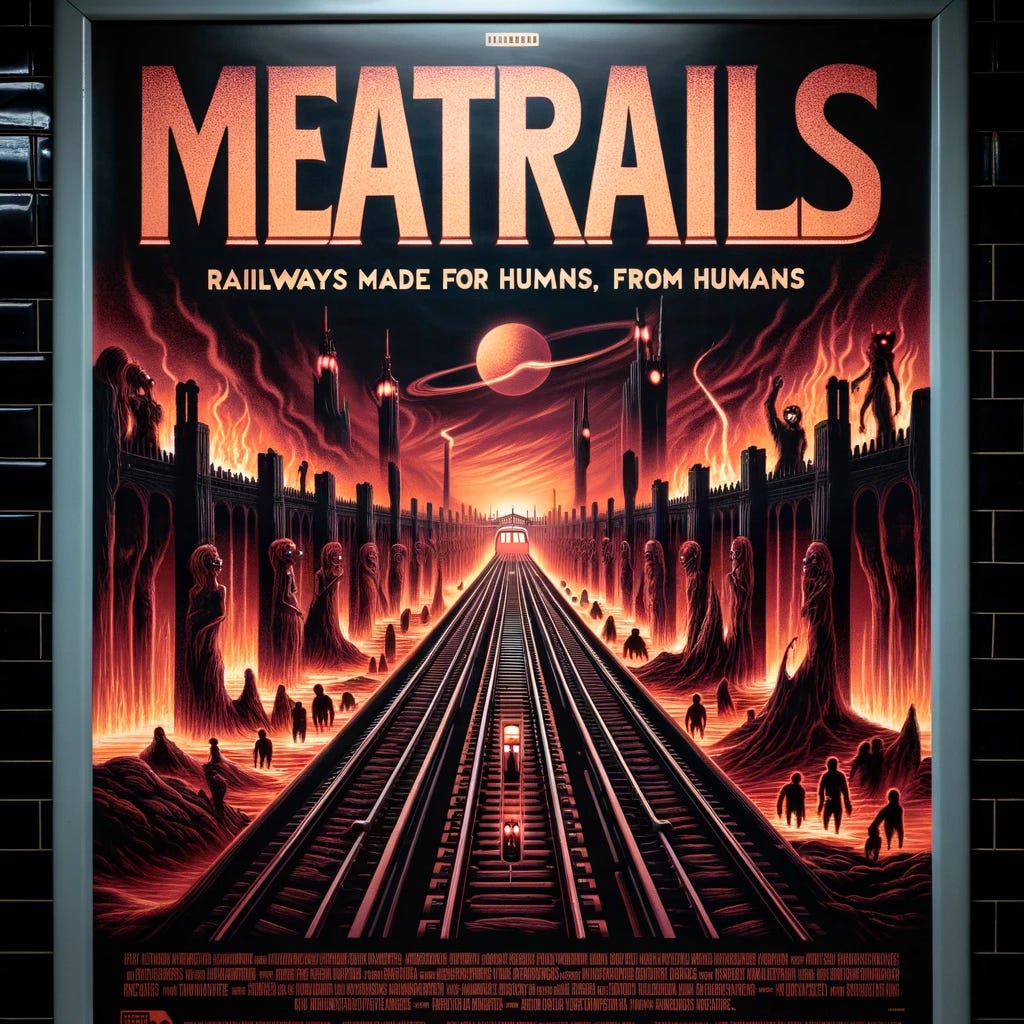

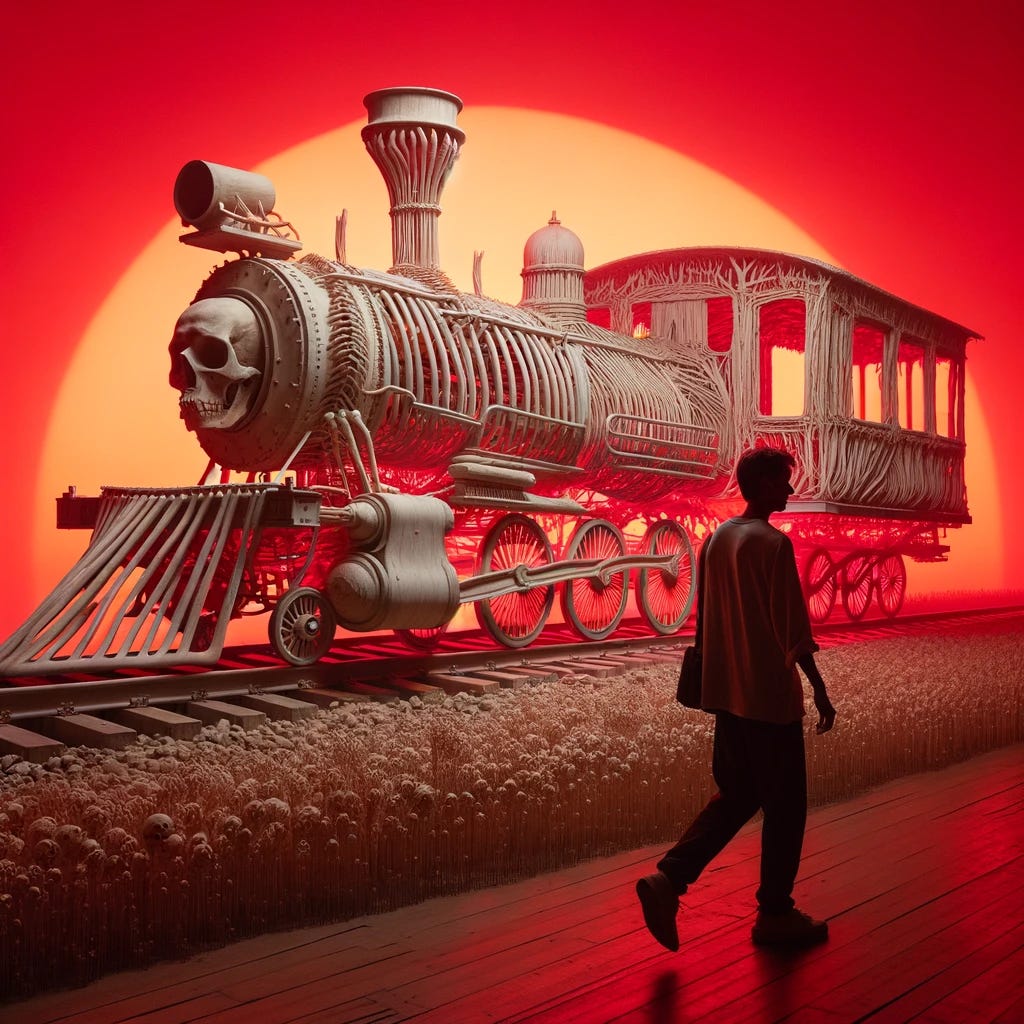
This was great! I liked this a lot and felt like each component worked really well. Hell being filled with Tasks full of meaning gives it a fable-like feeling. It also made me wonder what Hell looks like after eons of people who all have tasks; does it end up as a closer approximation to a place that people would actually want to live in? I also think that modern life often is filled with jobs without meaning, and so there’s something attractive about this idea (reminds me of Shop Class as Soulcraft’s thesis), of working with your hands and becoming more grounded.